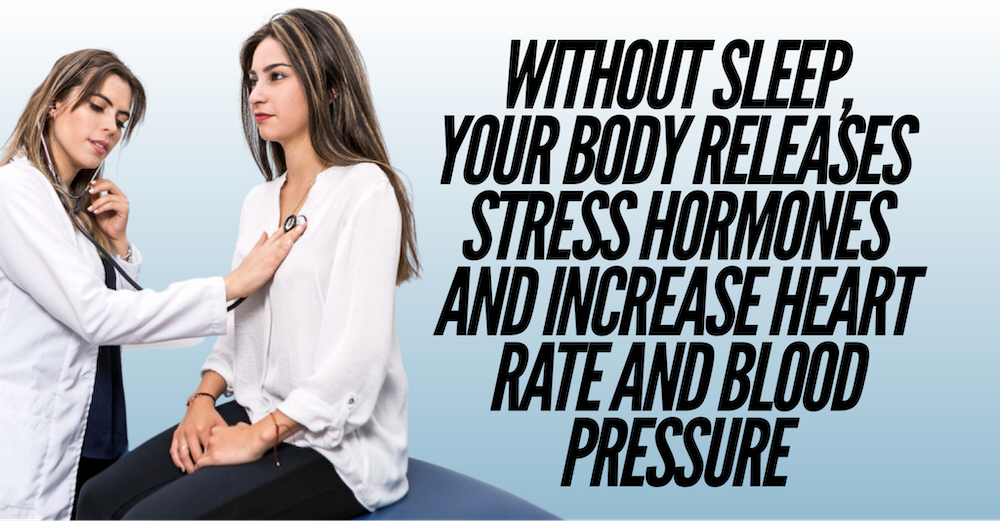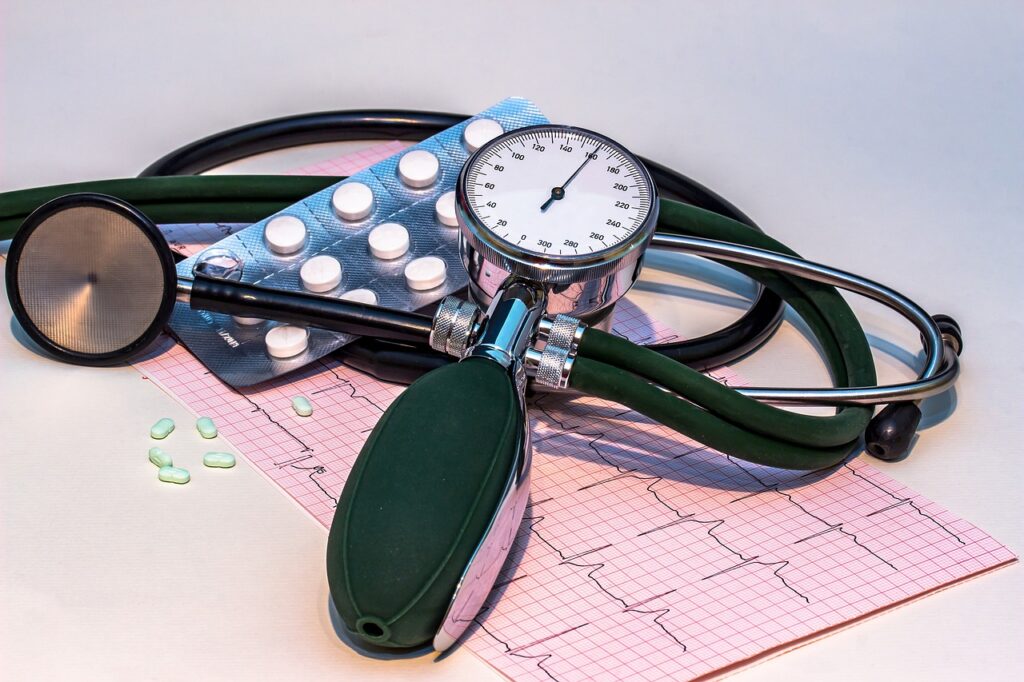
After waking up, Luke noticed his heart was racing. He tried to calm himself down, but it only made his heart beat faster. He attempted to concentrate on his daily routine, but his heart was beating so fast that it seemed like it would burst out of his chest.
Luke consulted his doctor, who diagnosed him with a ‘racing heart,’ a common condition when the heart beats more than usual due to stress, anxiety, or other medical conditions. In addition to consuming less coffee and alcohol, Luke changed his lifestyle with exercise and relaxation techniques, such as deep breathing and meditation, and his heart rate gradually stabilized.
A racing heart at night is a scary feeling. So, it’s essential to recognize the signs and symptoms to reduce the risk of complications.
1 – Stress and sleep deprivation. Without sleep, your body releases stress hormones and increases heart rate and blood pressure, the most common causes of a racing heart at night. Getting at least seven hours of sleep is vital, because it improves your heart’s health.
2 – Sleep apnea. People with sleep apnea are at an increased risk of developing high blood pressure and other cardiovascular diseases. Furthermore, it lowers the blood’s oxygen level during breathing pauses.
3 – Changes in blood sugar. Blood sugar is affected by what a person eats and drinks, and how active they are throughout the day. Eating a large meal or drinking a high sugar content before bed can cause blood sugar levels to rise, leading to an increased heart rate.
✅ People who don’t get enough physical activity during the day have a drop in blood sugar at night. Maintaining healthy eating and exercise habits prevents the heart from racing while sleeping.
4 – Caffeine. Coffee, tea, and energy drinks contain caffeine, a stimulant that causes the heart to race at night. The increased heartbeat and heart strength are normal responses to high doses of coffee. In addition, caffeine can also cause anxiety and nervousness in certain people.
__________
The first sip of coffee enters the bloodstream from the stomach and small intestine, stimulating the central nervous system. Caffeine interferes with the body’s natural ability to relax, which makes it difficult to sleep. Avoid drinking too much caffeine during the day to avoid heart palpitations at night.
5 – Body position. There is an increased risk of heart palpitations if you sleep in a reclined position. If you sleep on your side, the pressure on your heart grows and can cause palpitations. The ideal sleeping position is on your back.
6 – Cardiac conditions. A racing heart when you wake up is not necessarily a sign of something serious. If your heart has been racing when you are sitting, lying down, or sleeping, it could be an arrhythmia, ventricular tachycardia, supraventricular tachycardia, or both. Additionally, certain medications can increase the risk of heart palpitations.
7 – Heart disease. Cardiovascular disease is a severe condition that can cause a person to wake up with a rumbling heart—the causes: are high cholesterol, high blood pressure, and a family history of heart disease. Heart disease also causes difficulty sleeping, as well as difficulty breathing.
8 – Activation of the vagus nerve. It is one of the nerves responsible for controlling the heart rate, and can be activated when lying on the left side of the body. This nerve passes through the neck and chest to the abdomen, and sends signals to the heart to keep it beating constantly. When this nerve is activated, it causes vibrations due to an increased heart rate.
There are many causes of a racing heart when sleeping. Stress, lack of sleep, sleep apnea, changes in blood sugar, caffeine intake, body position, and heart conditions cause your heart to race at night.
If you experience racing heartbeats when you sleep, talking to your doctor to rule out any underlying health problems is essential. Your doctor may recommend lifestyle changes or medications to control your symptoms.
However, if the racing heart is not causing health difficulties, it is perhaps an overactive vagus nerve and can be controlled with relaxation techniques and other activities.
__________
